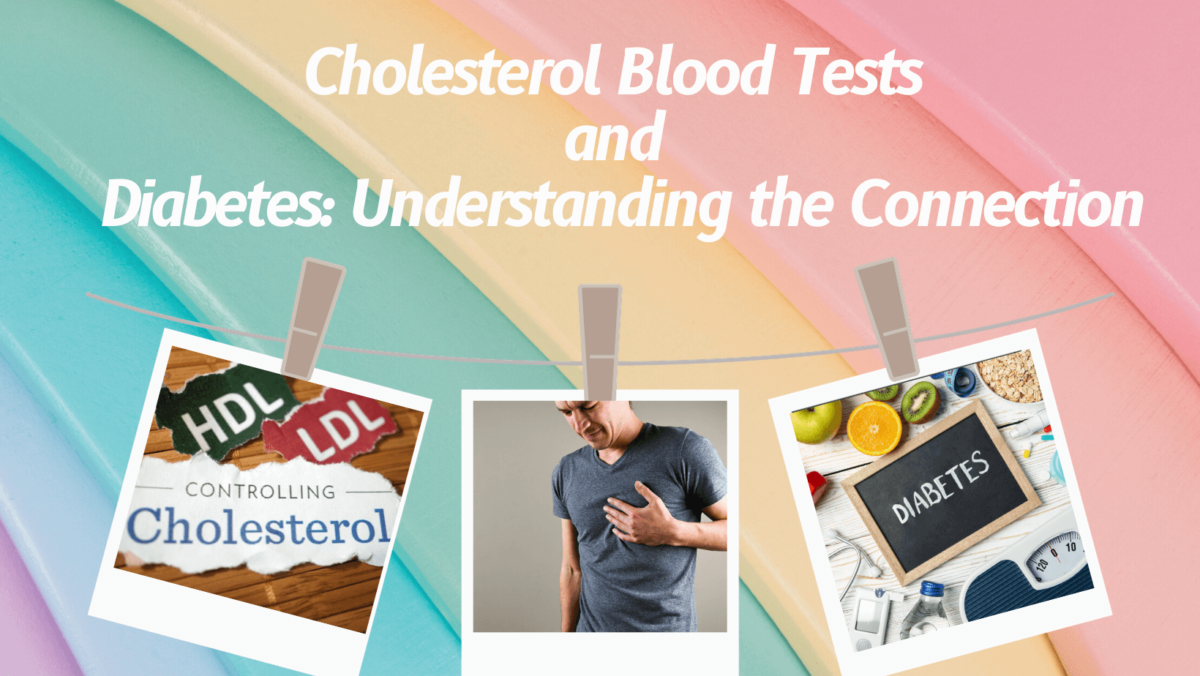Knowing the complex interplay between the many variables that affect our health is essential to maintaining good health. One such significant connection arises between high cholesterol and diabetes. Despite appearing to be separate, these two illnesses are very intimately related in ways that demand our understanding. If you want to do a Cholesterol blood test in the UK, you can go through the Miracle Inside. They provide expert service to their patients. We may learn a lot about how these diseases interact and what we can do to effectively manage our health by examining the association between cholesterol blood tests and diabetes.
Basic Information on Diabetes and Cholesterol
- Cholesterol Screening
The cells in our bodies and the food we eat both include cholesterol, which is a waxy, fatty-like molecule. It is crucial for several body processes, including the synthesis of hormones, vitamin D, and chemicals that facilitate digestion. However, too much cholesterol in the blood can cause arteries to narrow and restrict blood flow as a result of plaque buildup. The risk of heart disease and stroke may rise as a result.
- Diabetes
On the other hand, diabetes is a metabolic condition marked by elevated blood sugar levels. Type 1 diabetes and Type 2 diabetes are conditions where the body either produces insufficient insulin or develops resistance to its effects. A hormone called insulin controls the uptake of glucose (sugar) from the bloodstream into the cells, where it is used as fuel.
The Link
The following important details may help you comprehend the complex relationship between high cholesterol and diabetes:
Atherogenic Dyslipidemia
Atherogenic dyslipidemia is a particular lipid profile that raises the risk of cardiovascular disease. There are high levels of triglycerides, low levels of HDL cholesterol, and a rise in tiny, dense low-density lipoprotein (LDL) particles. The prevalence of this illness in people with Type 2 diabetes and insulin resistance serves to emphasize the link between cholesterol and diabetes.
Inflammation:
Both elevated cholesterol and diabetes are characterized by chronic low-grade inflammation. Cardiovascular illnesses are exacerbated and developed as a result of inflammation. Inflammatory indicators are frequently found in increased concentrations in diabetics, and these markers can affect cholesterol metabolism and lead to atherogenic dyslipidemia.
Insufficiency of Insulin
Insulin resistance is crucial in the development of Type 2 diabetes. Blood sugar levels rise as a result of cells being unable to efficiently absorb glucose when they develop insulin resistance. These changes in lipid metabolism, including higher triglycerides and lower levels of high-density lipoprotein (HDL), or “good” cholesterol, have been associated with insulin resistance.
Cardiovascular Risk
Diabetes and high cholesterol levels each individually raise the risk of heart attacks and strokes. The danger is increased when these ailments interact. Maintaining healthy cholesterol levels is essential to reducing the risk of heart disease in people with diabetes.
The Connection’s Management
Effective management techniques are made possible by understanding the relationship between cholesterol blood tests and diabetes:
Continual Watch:
To determine their lipid profile, people with diabetes should get routine blood testing for cholesterol. This enables medical professionals to spot any irregularities and modify treatment strategies as necessary.
Changes in Way of Life:
A healthy lifestyle should be adopted. A well-balanced diet full of fibre, whole grains, fruits, vegetables, lean proteins, and healthy fats will help control blood sugar and cholesterol levels. Maintaining a healthy weight and enhancing insulin sensitivity are two additional benefits of regular exercise.
Medication:
When lifestyle modifications alone are insufficient to control cholesterol levels, doctors may prescribe statins. When choosing the best course of therapy, medical professionals must take both diabetes and cholesterol levels into account.
Holistic Strategy:
Treatment for the link between cholesterol and diabetes must be comprehensive. An efficient management strategy must address inflammation, control blood pressure, and keep an eye on blood sugar levels.
Summary
It is impossible to overstate how closely cholesterol blood tests relate to diabetes. To maintain optimum health, it is essential to understand how these conditions interact with one another. People can successfully control their cholesterol levels and diabetes, lowering their risk of cardiovascular problems and improving their general well-being, by staying informed, taking preventive actions, and working closely with Miracle Inside healthcare specialists.
